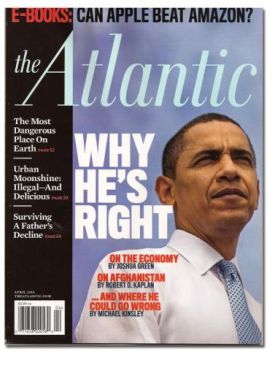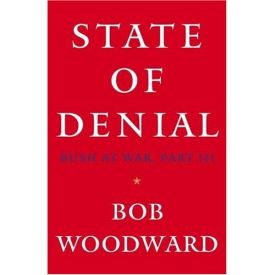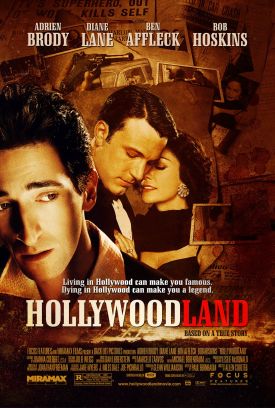A “narrative” outworn
From The New CriterionBarely more than 24 hours after the firing of James Comey as director of the F.B.I. the following headline appeared in the New York Times: “Sense of Crisis Deepens as Trump Defends F.B.I. Firing.” Had the “sense of crisis” had a chance appreciably to “deepen” in such a short time? And wasn’t it deep enough to begin with, at least according to the previous day’s Times, to warrant a comparison to the undoubtedly deep crisis of Watergate? Without even going on to read the article, one had the impression that Michael D. Shear, Jennifer Steinhauer and Matt Flegenheimer were all doing their darnedest to make us see the crisis as deepening — perhaps even to see it as a crisis — but quite independently of any facts they might have to place in evidence for such a congenial conclusion.
Whenever I see a headline like that one, I think of Michael Cieply’s shockingly unshocked account for Deadline Hollywood last November of the difference he found working for the New York Times compared with The Los Angeles Times:
For starters, it’s important to accept that the New York Times has always — or at least for many decades — been a far more editor-driven, and self-conscious, publication than many of those with which it competes. Historically, the Los Angeles Times, where I worked twice, for instance, was a reporter-driven, bottom- up newspaper. Most editors wanted to know, every day, before the first morning meeting: “What are you hearing? What have you got?” It was a shock on arriving at the New York Times in 2004, as the paper’s movie editor, to realize that its editorial dynamic was essentially the reverse. By and large, talented reporters scrambled to match stories with what internally was often called “the narrative.” We were occasionally asked to map a narrative for our various beats a year in advance, square the plan with editors, then generate stories that fit the pre- designated line. Reality usually had a way of intervening. But I knew one senior reporter who would play solitaire on his computer in the mornings, waiting for his editors to come through with marching orders. Once, in the Los Angeles bureau, I listened to a visiting National staff reporter tell a contact, more or less: “My editor needs someone to say such-and-such, could you say that?”
Mr Cieply’s piece was written in response to the alleged soul-searching going on at The New York Times, in the wake of the election, for having completely missed the Trump surge, carrying him to victory in the American heartland — in which the paper had appeared to take no more interest than Hillary Clinton did. But the lesson about the dangers of sticking to your “narrative” at all costs appears not to have been learned since then. You just know that somebody, somewhere at the Times said to somebody else: “My editor needs someone to say that the sense of crisis over the F.B.I. firing is deepening; could you say that?” And of course, somebody, if only one of the reporters themselves, did say that. If that’s not Fake News, then nothing is.
The point is not that the sense of crisis over Mr Trump’s dismissal of James Comey was not deepening, though that would have to depend on whose sense of crisis you’re talking about. The media’s appears to have been deepening well before Mr Comey’s dismissal. That is what the media’s sense of crisis is there to do. But the headline hinted that the Trump administration must have felt itself to be in a deepening crisis, and that was at odds with the whole tenor of the article, at least on my reading of it. It had one named “expert” to push the deepening crisis narrative, but it was mainly concerned with the amused mockery by the Russian foreign minister, Sergey Lavrov, of the American press pack for its obsession with Mr Comey and the Russian “collusion” story.
“I never thought I’d have to answer such questions,” said Mr Lavrov, “all the more in the United States of America, with your greatly developed democratic and political system.” That last bit, according to the ever-perceptive Times reporters, was said with “a tinge of sarcasm in his voice.” If so, however, it has had no more effect than my own tinges of sarcasm ever have had on the media bloodhounds in pursuit of a scandal. They kept asking Mr Lavrov about the Comey firing until, exasperated, he said to them in American demotic: “Guys, this is not serious.” He was finding out what happens to you in our greatly developed democratic and political system when you don’t say what “the narrative” needs you to say: you just get badgered until you give them something that the narrative can use. In this case it was the suggestion that his sarcasm and dismissiveness about it must mean that he, too, has something to hide — and, therefore, that the crisis must be deepening.
Anyway, wasn’t everybody else saying so too? Of course there could be a reason for that beside the allegedly deepening crisis itself. What would you have guessed you might hear, for example, if you asked the famous Carl Bernstein, who owes his celebrity status to Watergate, what he thinks about the Comey firing? CNN decided to find out and, to no one’s surprise, he told them that it was a “terribly dangerous moment in American history.” You know, sort of like Watergate.
The White House has kept up [sic] from trying to learn what we need to learn (he said). And this is the ultimate execution of that strategy. And unlike Watergate, where Republicans were the heroes, and Republicans said about Richard Nixon, regardless of party, we need to know the truth about what happened, a great senator from Tennessee, a Republican, said, what did the president know and when did he know it, we now have Republicans like Mitch McConnell who have shown no interest in the best obtainable version of the truth here.
He began, that is, with the unspoken assumption that Russia-gate was just like Watergate because he knew his opinion would not have been solicited in the first place if his interlocutors didn’t already think that — and then he said that it was actually worse than Watergate, because the Republicans don’t agree with the scandal narrative’s invidious equation and so must be presumed to be assisting with the cover-up. Who’s going to doubt the mythic hero of Watergate himself when he says such stuff?
Of course, he wasn’t the only one. The New York Times, as I mentioned earlier, greeted the news on the day after with the headline “In Trump’s Firing of James Comey, Echoes of Watergate.” Who didn’t see that one coming? The specific echo, picked up by numerous other headlines from around the media merry-go-round compared it to the “Saturday Night Massacre”of October 20, 1973, when the attorney general, Elliot Richardson, and his deputy, William Ruckleshaus, both resigned rather than fire the Watergate special prosecutor, Archibald Cox — so that solicitor general Robert Bork was got in to do the deed in their stead. Though there was only one corpse in this “massacre,” the hype hardly seemed enough, somehow. As the ever calm and judicious Nobel prize-winner Paul Krugman wrote in his New York Times column: “At this point. . . almost an entire party appears to have decided that potential treason in the cause of tax cuts for the wealthy is no vice. And that’s barely hyperbole.”
Elliot Richardson is dead, but Mr Ruckleshaus is still alive, a hale and hearty 83 and living in Medina, Washington, where The Seattle Times caught up with him way back in January on the occasion of an earlier recrudescence of the Watergate narrative. The results were amusing and instructive for connoisseurs of media narrative-pushing. Asked about the the dismissal of Sally Yates as acting attorney general for declining to defend the Trump “travel ban,” her predecessor in office was not entirely co-operative. “Ruckelshaus recognizes the parallels between the two situations,” wrote the reporter, David Gutman:
Both he and Yates were asked to carry out a presidential order and refused. In Ruckelshaus’ case, however, he was asked by the president to thwart an investigation into the president. Yates was only asked to defend the president’s policy in court. Ruckelshaus, who was awarded the Presidential Medal of Freedom in 2015, says he doesn’t know enough about the specifics to judge Yates’ actions, but it comes down to that concept of “fundamentally wrong.” “Just because you don’t get your way with the president doesn’t necessarily mean you refuse to take his orders, refuse to carry out his commands,” he said. “What I’ve seen on television is they’re mostly arguing the legal points, and for me that’s not as important as whether, under all the circumstances involved, she was asked to do something that she believed was fundamentally wrong. I don’t know that.”
Whatever. Mr Gutman’s editor needed Mr Ruckelshaus to say something, and if he didn’t say it, well, the “parallels” were close enough — close enough, anyway, to lead with the one thing we know the two ex-acting attorneys general have in common: they both “know what it’s like to publicly say no to the most powerful man in the world, who also happens to be your boss.” Anyway, it all “comes down to that concept of ‘fundamentally wrong’” — even if there’s nothing anyone knows about that is fundamentally wrong.
It’s another way of adducing the bogus “lesson” of Watergate, mentioned in this space two months ago (see “Of leaks, links and lies” in The New Criterion of April, 2017), that the “cover-up” not the crime makes the scandal, even when there is no crime. Why would anyone believe, let alone teach as a fundamental tenet of scandalology, anything so absurd? Why else but that Watergate is the media’s accepted template for scandal, even when the alleged scandal bears no resemblance to its great original. Watergate is the celebrity of scandals, just as Mr Bernstein, with his erstwhile partner Bob Woodward, is the celebrity of Watergate. That it has lent its -gate suffix to hundreds of wannabe scandals over the last 45 years is only the most obvious indication that it remains the scandal narrative that all subsequent scandal narratives seek to emulate.
And that makes it the off-the-shelf narrative to be reached for and reinforced by suitable quotation from media “experts” whenever there is a potential presidential scandal a-brewing, as there has been since even before Sally Yates, now enjoying a second round of celebrity interviews on account of her unheeded warning to the incoming Trump administration about Michael Flynn’s Russian “ties.” Retrospectively, that has now become part of the “deepening” scandal, which has actually been deepening since before Mr Trump took office. “OK, NOW Is It Watergate?” wrote Elizabeth Drew in the Politico magazine by way of acknowledging that for her, as for the rest of the far-seeing, Trump-hating media, it has been Watergate all along, Watergate a priori, Watergate fils just waiting for its confirmation by some such plausible “parallel” as the firing of Mr Comey, which disobligingly happened on a Tuesday.
Somebody with a sense of mischief at the Nixon Library tweeted: “”FUN FACT: President Nixon never fired the Director of the FBI #FBIDirector #notNixonian,” but then had to take it back because, according to The New York Times, “some saw [the message] as a bizarre jab at Mr. Trump” and therefore a violation of the official non-partisanship of the National Archives, under whose rules the Nixon Library operates. I, on the other hand, saw it as a not-at-all-bizarre jab at the media’s monomaniacal attempts to jam the Trump-Russia story into the Procrustean bed of their ever-loving scandal “narrative.” In that narrative, Watergate is what scandal means, and it has become impossible for the media to think about scandal at all without reference to it. In media-land, politicians, especially Republican politicians, are always assumed to be covering something up which it is always going to be the job of the next lucky heirs to the mantle of Woodward and Bernstein to uncover.
My own entirely original theory about Mr Comey’s dismissal, which I promise you I came up with even before Mr Trump sought to explain himself by calling him “a grandstander” (“Trump Shifts Rationale for Firing Comey, Calling Him a ‘Showboat’,” headlined The New York Times), is that it resulted from the latter’s transmogrification from humble policeman to a celebrity detective by putting himself at the public and media center of the investigations, first, of Hillary Clinton’s e-mail server and then of the Trump campaign’s alleged Russian connections. As Mrs Clinton found out, this is not a good situation to find yourself in if you are the subject of the celebrity detective’s investigation. He has too many incentives to keep the media’s attention on himself at the expense of truth or justice, let alone of proper procedure. I don’t see how Mr Trump could be faulted for having profited by his erstwhile opponent’s example. He must have reckoned that the scandal of firing Mr Comey could be no more damaging to him than any of the dozens of others rustled up by a hostile media since he took office.
In fact, as a (sometimes) canny investor, he may well have spotted the political equivalent of the money-making opportunity outlined by the thriller-writer Matthew Lynn in the London Daily Telegraph. Writing under the heading: “There’s profit to be made from ignoring social media hysteria” (talk about News You Can Use!), Mr Lynn pointed out that, after plunging when video of the forcible removal of a passenger from one of its airplanes went viral, United Airlines stock had pretty quickly rebounded to where it was before the incident.
It is far from alone in that. Volkswagen has recovered very quickly from its diesel scandal, and the Twitter campaigns against Uber and Lego fizzled out in just a few weeks. There are small armies of consultants advising companies on how to cope with the occasional storms of criticism that blows [sic] their way on social media. But in fact the best thing they could do is to just ignore it all — while smart investors should buy the dips, safe in the knowledge that the shares will bounce back next week.
I pass this along in the same spirit of generosity, confident that, with so much outrage about, outrage fatigue must be a sound investment for the long haul. For outrage feeds both on itself and on its absence. It’s one of the wonders of nature. When one outrage begins to fade in the memory, that becomes a spur to further outrage, which only multiplies outrages to the point where they become entirely evanescent. The Comey affair was being fitted into the Watergate template in the hope of prolonging that outrage, but I’m betting it will turn out that even Watergate can’t escape the iron rule of scandalology emerging from the Trump era: when everything is Watergate, nothing is Watergate.
Discover more from James Bowman
Subscribe to get the latest posts to your email.







